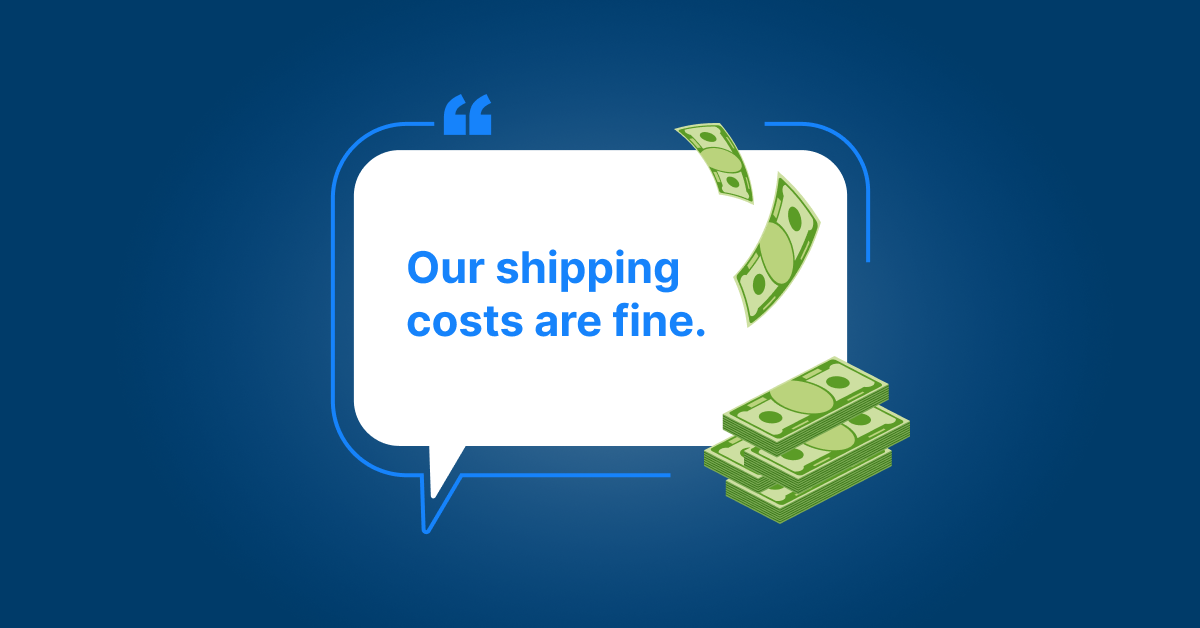Peak Season, Peak Risk: How to Protect Your Parcel Spend When it Matters Most

Surcharges, service failures, and costly surprises are coming—here’s how to prepare with automation on your side.
As Q4 approaches, shippers across industries are gearing up for the year’s most intense logistics challenge: peak season.
It’s a period where parcel volume spikes, carrier capacity tightens, and shipping costs surge—often in ways that catch even the most seasoned teams off guard. And this year, the pressure is even higher. With demand patterns shifting and carriers rolling out increasingly complex surcharges and limitations, the margin for error has never been thinner.
But while many shippers double down on last year’s strategy, the smartest ones are doing something different: they’re using automation to build in agility, efficiency, and resilience—before peak season hits.
What’s Different This Year
Carriers are already announcing their peak season surcharges, and if history is any indicator, these extra fees will stack up fast—especially for high-volume shippers serving residential zones. Add to that:
- Carrier network volatility, including USPS regional transitions and volume caps from private carriers
- On-time performance dips during critical delivery windows
- New rules around additional handling and oversized packages
…and you’ve got a minefield of rising costs and operational risk.
What used to be manageable noise has become strategic disruption—and traditional approaches to shipping audits, cost monitoring, and carrier strategy simply can’t keep up.
The 3 Peak Season Pitfalls Most Shippers Miss
Even well-run operations fall into the same costly traps when peak volume hits:
1. Hidden rate increases go unnoticed
From residential delivery area surcharges to demand-based peak fees, costs accumulate quietly. Without live cost monitoring and granular visibility, these shifts often show up too late—on the invoice.
2. Refunds for service failures are left on the table
Carrier service guarantees still apply—but only if you catch failures and file claims quickly. Manual processes almost always miss these windows, especially when volume peaks.
3. Carrier strategy stays static
In peak season, sticking with a single carrier or relying on expensive expedited services “just to be safe” often leads to overspending. Without real data to support trade-downs or diversifications, inertia wins.
How Catalyst Helps You Win Peak Season
Catalyst™, Intelligent Audit’s automated parcel audit and optimization platform, gives shippers the tools to stay agile and efficient during peak season—and beyond. It doesn’t just provide visibility. It takes action.
Here’s how:
1. Automated Audit & Refund Recovery
Catalyst continuously audits your parcel invoices across all carriers, flagging discrepancies in real time. When shipments miss their SLA, the system automatically files for refunds—no manual effort, no delay.
This is especially critical during peak, when delays are common but still refundable if caught fast.
2. Dynamic Carrier & Service Optimization
Catalyst compares actual performance data and recommends smarter service level choices. That could mean identifying Ground as a reliable (and cheaper) alternative to 2-Day, or spotlighting cost inefficiencies in your carrier mix.
It’s the difference between feeling in control—and being in control.
3. Spend Management BI
Catalyst provides intuitive dashboards to help you understand where your dollars are going, why costs are rising, and how to intervene. You get full transparency across all carriers, services, and regions—so you can budget better, prioritize smarter, and drive accountability.
Peak-Proof Your Shipping Strategy
Peak season doesn’t have to be painful. But it does have to be planned for—and that planning needs to go deeper than volume forecasts and blackout dates.
It requires technology that watches every shipment, every invoice, and every cost variable in real time. It requires automation that doesn’t just surface insights—but acts on them. And it requires partners who understand that shipping decisions in Q4 carry outsized consequences.
This year, protect your parcel spend when it matters most. Let Catalyst be the engine that turns complexity into clarity—and volatility into advantage.
Ready to peak-proof your strategy?
Start your free 90-day trial of Catalyst and make this your most optimized peak season yet.



